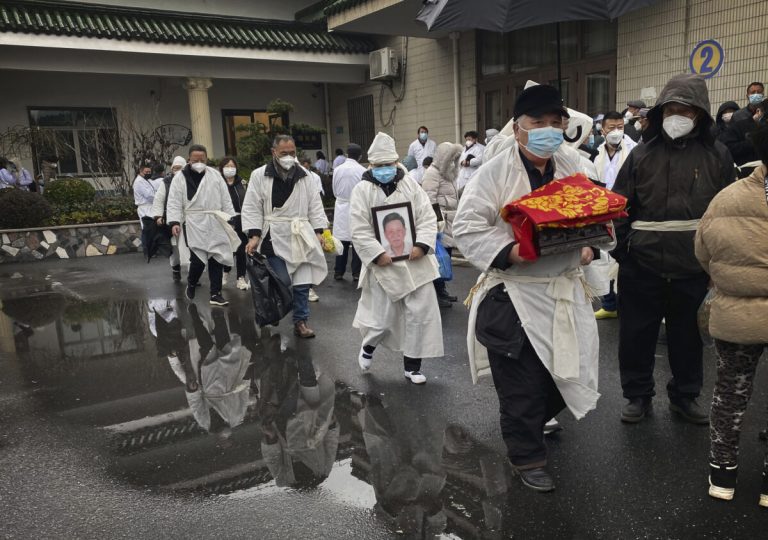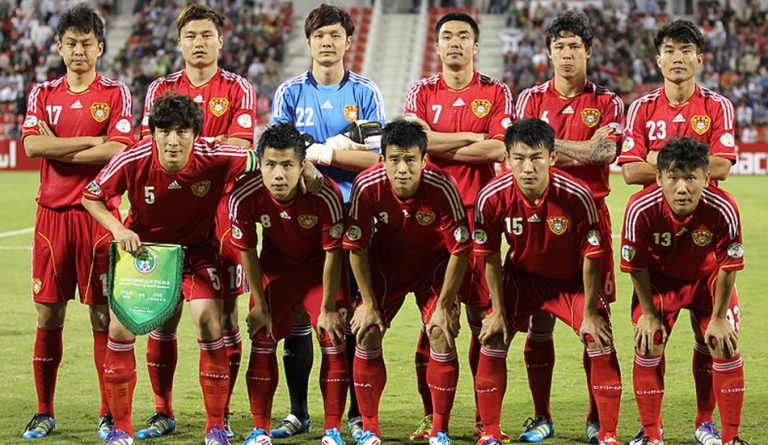Various healthcare-related departments in China are undergoing a one-year probe by the country’s National Health Commission (NHC) into possible misuse of funds and other malfeasance in past years, according to an announcement late this July.
The NHC’s “rectification” of the healthcare system will scrutinize what it calls “key links” in the Chinese pharmaceutical industry — sales, supply, usage, and reimbursement — as well as the “key few” cadres in the sector.
On July 28, a week after the NHC’s announcement, the Central Commission for Discipline Inspection (CCDI) — the Chinese Communist Party’s anti-corruption agency — held a video conference in Beijing to discuss the campaign. In attendance and speaking at the conference was CCDI deputy secretary Yu Hongqiu, who is also deputy director of the National Supervisory Commision (NSC).
Nine ministries are cooperating with the investigations, among them the ministries of education and public security, the National Healthcare Security Administration, National Bureau of Disease Control and Prevention, National Medical Products Administration, and National Administration of Traditional Chinese Medicine, as well as government market regulators and auditors.
Back to the source
Various reports circulating on the internet cite people in Chinese healthcare system as saying that the CCP’s campaign is a “20-year retroactive investigation” of the entire industry, going back through computer records to 2003, when such documents were first digitalized.
Success
You are now signed up for our newsletter
Success
Check your email to complete sign up
Other healthcare insiders had told Chinese media outlets that Communist Party authorities were deploying investigation teams to large state-owned pharmaceutical enterprises and firms operated by the central government since early this summer.
According to a report on Aug. 9 by China Newsweek, at least 159 hospital directors and Party secretaries had been investigated by the Chinese Communist Party (CCP) disciplinary authorities since the start of the year.
In addition, China Securities Journal reported that at least 155 officials at hospitals across China were being probed for violating discipline and laws as of July 26, or more than double the total tally in 2022.
According to other mainland Chinese media outlets, the CCP authorities have been pursuing a top-down, systematic anti-corruption effort since the beginning of 2022. The period from early 2022 to the end of July 2023 is reportedly known as the “self-correction” phase where corrupt officials and personnel are required to return their ill-gotten remunerations.
On July 25, a draft amendment to Chinese criminal law was submitted to the National People’s Congress. It proposes strengthening the punishment for bribery-related offenses, including that occurring in the sectors of food, medicine, education, and healthcare.
Healthcare-sector stocks declined in the wake of the announcements.
Blood money?
“The rectification of the pharmaceutical sector and healthcare system comes amid the continued deterioration of the Chinese economy, local government financial shortages, the Chinese people receiving fewer healthcare benefits after a health insurance reform, and growing social discontent as the people deal with increasing hardships,” SinoInsider, a New York-based consultancy specializing in Chinese elite politics, wrote in their Aug. 14 newsletter.
For the CCP, “rectifying” the healthcare system looks to be a way of recouping money lost to corrupt officials and businesses at a time when the regime is running up against dangerous financial shortfalls.
According to the SinoInsider analysts, Beijing could successfully reel in hundreds of billions of yuan (tens of billions of US dollars worth) from the rectification campaign, assuming it broadly targets the 11,800 public hospitals and other health institutions nationwide.
Another aspect of the regime’s current action is more political in nature: “it was common knowledge during the Jiang-Hu era, when the Jiang Zemin faction was dominant, that the CCP elite was using up a significant portion of the regime’s healthcare resources,” SinoInsider wrote in a previous newsletter this February, referring to the former CCP leadership under Jiang Zemin and later Hu Jintao.
The Jiang faction, which rose in the late 1990s, dominated the CCP regime until 2012, when current leader Xi Jinping took office.
“The commercialization of healthcare in China was also a by-product of the Jiang faction’s era of dominance, and problems associated with that development have persisted under the Xi leadership,” SinoInsider noted this month.
Meanwhile, the “rectification” of the healthcare sector comes amidst mounting international scrutiny of forced organ harvesting in China, which became an extremely lucrative industry in the Jiang era, when the now-deceased leader ordered a brutal campaign to eradicate the spiritual practice of Falun Gong targeting its tens of millions of adherents.
Human rights investigators believe Falun Gong practitioners were the main source of organ transplants during the 2000s — and murdered en masse in the process.
The ongoing investigations into healthcare sector corruption could allow the Xi leadership, which has long vied with the Jiang faction for influence and control in the regime, to put further pressure on otherwise untouchable Party elders who continue to hold sway in politics.
In March, the U.S. House of Representatives passed the “Stop Forced Organ Harvesting Act” with near unanimity. And in July, Chinese observers spotted signs that the CCP had persisted with organ harvesting during the Xi years, including a recently released testimony from a Falun Gong practitioner who managed to recount the abuse inflicted upon her and the removal of her kidneys to a doctor who videotaped her account in 2019 before she succumbed to her injuries, and several mainland media reports that appeared to acknowledge indirectly that a Sichuan Airlines flight on July 21 had transported “living organs” from Chengdu to Wuxi for transplantation.
Also in July, retired Chinese military doctor Zheng Zhi, who had previously revealed his knowledge about forced organ harvesting under the CCP anonymously, came forward to Vision Times and other overseas Chinese-language media to testify openly about his experiences with the regime’s crimes.
SinoInsider contributed to this report.












